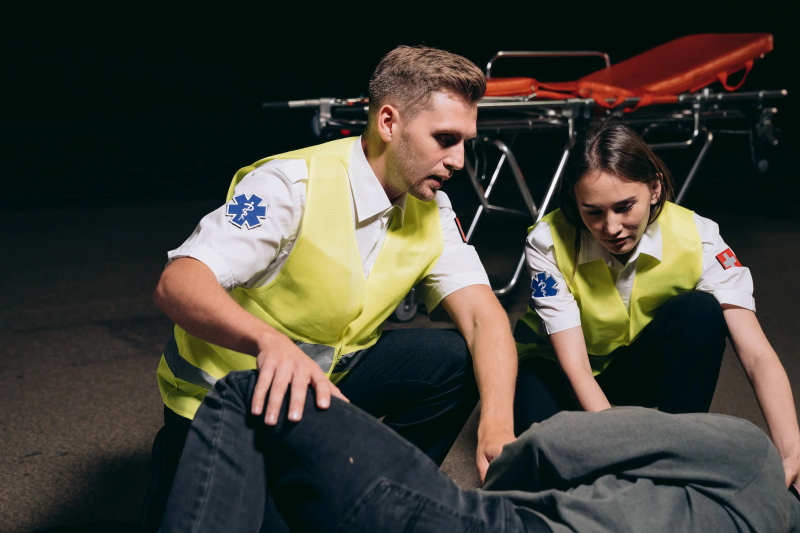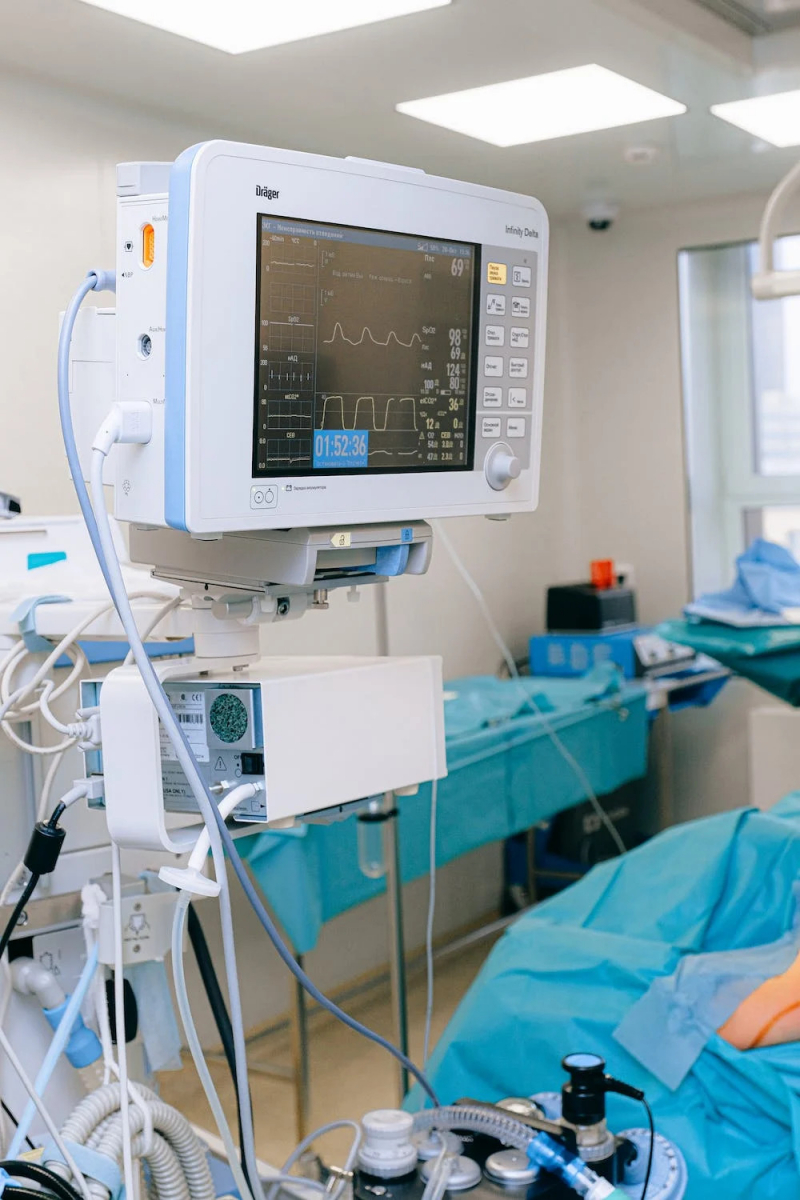Top 13 Most Asked Medical Assistant Interview Questions with Answers
If you’re looking for a career in the medical field, a medical assistant job may be the perfect fit. Medical assistant interviews usually focus on your ... read more...customer service skills, as well as your knowledge of medical terminology and procedures. Here are the top 10 most asked medical assistant interview questions with answers that will help you confidently ace your interview.
-
Employers ask this question to learn more about your plans to apply for an open position. They want to know that you are genuinely interested in the position and that you are qualified for it. Consider what inspired you to pursue a career in healthcare when preparing your response.
Consider what you like about being a medical assistant and what skills you possess that make you a good fit for the position. One of the biggest reasons why becoming a medical assistant is a great career choice is because you are helping people. Whether it is to get your patients feeling better or just by making them feel comfortable, whatever reason it is, being able to help someone else makes you want to be better at your job every day.
Example: “I have always been passionate about healthcare and helping others. As a medical assistant, I am able to do just that by providing support to physicians and other healthcare professionals in the delivery of patient care. I believe that my experience as a medical assistant will allow me to make an impact on the lives of patients by ensuring they receive quality care.
I also enjoy the variety of tasks that come with being a medical assistant. From taking vital signs and performing laboratory tests to scheduling appointments and preparing treatment rooms, no two days are ever the same. This keeps me engaged and motivated to continue learning and growing in this field.”

Image by cottonbro studio via pexels.com 
Image by Tima Miroshnichenko via pexels.com -
"What do you hope to accomplish during your time here?" is one of the most Asked Medical Assistant Interview Questions. Employers ask this question to see if you have career goals. They want to know that you want to learn and grow in your position. Consider what you want to accomplish in the next year or two when answering this question. Consider what skills you want to develop and what projects you want to take on.
You may describe why you think this job at this company could help you develop certain skills or is a good example of the kind of working environment you think fits your style. Expressing ambition and motivation for a successful career can show your enthusiasm and willingness to work hard. It can also help to discuss your willingness to grow and learn as a professional when answering this question. Even if you don't yet have much work experience, you can impress the hiring manager by highlighting your strong work ethic instead.
Example: “I am excited to join your team and contribute my knowledge and experience as a Medical Assistant. My goal is to provide the highest level of patient care possible while helping to ensure that the office runs smoothly and efficiently. I hope to use my skills in medical terminology, clinical procedures, and administrative tasks to help create an environment where patients feel comfortable and safe.In addition, I want to be able to grow professionally during my time here. I am eager to learn new techniques and strategies for providing quality healthcare services, as well as any other skills that will make me a better Medical Assistant. Finally, I look forward to building relationships with colleagues and patients alike, so that we can all work together to achieve our common goals.”

Image by cottonbro studio via pexels.com 
Image by Tima Miroshnichenko via pexels.com -
" Can you tell me about a professional achievement that you earned?" is one of the most Asked Medical Assistant Interview Questions. Employers ask this question to learn more about your work ethic and how it has helped you succeed. When answering this question, describe a time when you were able to complete a difficult task or meet a specific goal.
However, you should always discuss what sets you apart from the other candidates with specific accomplishments in life or in previous roles. Give an answer demonstrating your abilities as the best candidate for the job. By reading and understanding the job description, you should know what the job requires. That way, you can tune your answers to every question the interviewer throws at you.Example: “Yes, I am proud to say that I have achieved many professional accomplishments in my career as a Medical Assistant. Most recently, I was honored with the Employee of the Month award at my previous job for going above and beyond expectations. This recognition was especially meaningful because it demonstrated how much my hard work and dedication had been noticed and appreciated by my colleagues and supervisors.
I also take pride in having earned a certification from the American Association of Medical Assistants (AAMA). This certification is an important marker of my expertise and knowledge in the field, and I strive to stay up-to-date on all the latest developments in medical assisting. Finally, I’m proud to have completed several continuing education courses related to medical assisting, which has helped me stay current on best practices and new technologies.”

Image by Andrea Piacquadio via pexels.com 
Image by Ketut Subiyanto via pexels.com -
Interviewers often ask this question to gauge your interest in the position and your level of preparation for the interview. It’s important to take a moment to review the job description and your notes from the interview to make sure you’re asking questions that are relevant to the position. Your interview gives the hiring manager insight into your professional experience, qualifications and accomplishments, but it's also a great time for you to learn more about the company and job. Focus on asking questions about topics that weren't covered or that you would like to discuss in greater detail.
Asking thoughtful questions in your interview reaffirms your interest in the job. It also shows the hiring manager that you've thought seriously about what it would mean to be employed in this role at this company. With the right questions, you'll be able to illustrate your knowledge of the company and industry and your drive to excel in the new position.
Example: “Yes, I do have a few questions. First, what type of medical assistant duties would I be expected to perform in this position? Second, how long has the practice been established and what is the team dynamic like? Finally, what kind of growth opportunities are available for Medical Assistants at your practice?I believe my qualifications make me an ideal candidate for this role. I am a certified Medical Assistant with over five years of experience working in busy healthcare settings. I have excellent communication skills, both verbal and written, as well as strong organizational abilities. I’m also very knowledgeable about medical terminology, coding, and insurance billing processes. My attention to detail and ability to work independently or collaboratively makes me an asset to any team. I’m confident that I can provide exceptional patient care and help ensure the efficient operation of your practice.”

Image by Alexander Suhorucov via pexels.com 
Image by Leeloo Thefirst via pexels.com -
If you are applying for a position as a medical assistant in a state that requires a license, the employer may ask you this question to ensure you have the necessary credentials. If you are not licensed in the state where you are applying, explain why and what steps you are taking to become licensed. If you are licensed, please include the name of your state as well as the type of license you hold.
Example: “Yes, I am licensed to work as a Medical Assistant in this state. I have been working in the medical field for over five years and have obtained my certification through an accredited program. During that time, I have gained extensive knowledge of medical terminology, patient care protocols, and administrative duties. I also understand the importance of staying up-to-date on new regulations and best practices.
I take great pride in providing quality care to patients while adhering to all safety standards. I am confident that I can bring my experience and expertise to your team and help provide excellent service to your patients.”

Image by cottonbro studio via pexels.com 
Image by Christina Morillo via pexels.com -
Employers can learn about your educational background and how long you've been in the field by asking this question. You can mention your degree or certificate if you have one. If you don't, you can still discuss your education and experience.
Example: “I completed my Medical Assistant training at ABC Technical College. During the program, I was able to gain a comprehensive understanding of medical terminology, anatomy and physiology, pharmacology, laboratory procedures, patient care techniques, administrative duties, and more. I also had the opportunity to participate in an externship where I gained hands-on experience working with patients and healthcare professionals in a real-world setting. This gave me valuable insight into the day-to-day operations of a medical office and allowed me to hone my skills in customer service, communication, and organization.
I am confident that my education and experience have prepared me for this role as a Medical Assistant. I am eager to apply my knowledge and skills to help provide excellent patient care and ensure smooth daily operations.”

Image by cottonbro studio via pexels.com 
Image by cottonbro studio via pexels.com -
Employers ask this question to learn more about your level of experience. If you have previous hospital experience, they may be more likely to hire you. If you have prior experience working in a doctor's office, they may still be willing to hire you, but you may need to demonstrate your ability to handle the job's responsibilities.
Example: “I have worked in a variety of medical facilities, including hospitals, private practices, and urgent care centers. In my most recent role as a Medical Assistant, I was responsible for providing patient care in an outpatient setting. During this time, I gained experience with scheduling appointments, taking vital signs, performing laboratory tests, and assisting physicians with exams.
In addition to the clinical duties, I also had administrative responsibilities such as filing paperwork, managing patient records, and communicating with insurance companies. My ability to multitask and stay organized allowed me to successfully manage all aspects of the job. I am confident that my past experiences make me well-suited for this position.”

Image by Tima Miroshnichenko via pexels.com 
Image by Laura James via pexels.com -
This question is asked by interviewers to determine how you handle stress. They want to know that you can handle stress while still doing a good job. When responding to this question, try to concentrate on a time when you overcame a stressful situation and the positive outcome.
While people consider perfection impossible, hiring managers need candidates that show an in-depth understanding of the role. After giving your example, ensure the focus is on how you handled the stressful situation properly. This shows that you didn't remove yourself from the stressful situation, but that you have the skills to persevere and deliver quality work.
Example: “I was recently working in a busy medical office as a Medical Assistant. One day, I had to manage a particularly stressful situation when one of our patients became upset and started yelling at the receptionist.
I quickly stepped in and tried to de-escalate the situation by speaking calmly and reassuringly to the patient. I explained that we were doing our best to help them and asked if there was anything else we could do to make their experience better. After some time, the patient calmed down and thanked me for my assistance.
This experience taught me how important it is to remain calm under pressure and handle difficult situations with empathy and understanding. It also showed me the importance of communication and problem solving skills in a medical setting. As a Medical Assistant, I understand the need to be able to think on my feet and respond appropriately in challenging situations.”

Image by MART PRODUCTION via pexels.com 
Image by RODNAE Productions via pexels.com -
An emergency procedure is a plan of actions to be conducted in a certain order or manner, in response to a specific class of reasonably foreseeable emergency, a situation that poses an immediate risk to health, life, property, or the environment. Where a range of emergencies are reasonably foreseeable, an emergency plan may be drawn up to manage each threat.
This question can help interviewers understand your level of experience and how you respond to difficult situations. You can use your response to highlight your skills and abilities, as well as to explain any emergency procedures training you've received.
Example: “Yes, I have had to perform emergency procedures in the past. As a Medical Assistant, it is important to be prepared for any situation that may arise. During my time as a Medical Assistant, I have been trained and certified in CPR and basic first aid. In addition, I am familiar with medical terminology and understand how to respond appropriately in an emergency situation.
I have also had experience responding to medical emergencies in a professional setting. On multiple occasions, I have assisted physicians in providing life-saving care to patients experiencing cardiac arrest or other serious medical issues. My ability to remain calm under pressure and quickly assess the situation has allowed me to provide effective assistance in these situations.”

Image by Mikhail Nilov via pexels.com 
Image by Pavel Danilyuk via pexels.com -
Teamwork is a vital skill for anyone in the nursing field. It's important to express that you recognize the value of working together with doctors, other nurses and staff members. Collaborating with your co-workers can provide the best patient outcomes, ensure the effectiveness of safety procedures and increase your job satisfaction.
This question allows the interviewer to assess your problem-solving abilities and ability to work as part of a team. When answering this question, it can be beneficial to provide an example of a time when you assisted a doctor or nurse in completing a task, but it can also be beneficial to provide an example of a time when you assisted another medical assistant in completing a task.
Example: “I recently had the opportunity to help a doctor with a task they were having difficulty completing. The doctor was trying to enter patient information into an electronic medical record system, but was having trouble navigating the software. I offered to assist and quickly identified that the issue was due to outdated software on their computer.
I took it upon myself to research the latest version of the software and then worked with the IT department to ensure that the doctor’s computer was updated. Once this was done, I showed the doctor how to use the new features and walked them through entering the patient information correctly. In the end, the doctor was able to complete the task successfully and thanked me for my assistance.”

Image by Anna Shvets via pexels.com 
Image by Pavel Danilyuk via pexels.com -
"Have you ever processed lab results?" is one of the most Asked Medical Assistant Interview Questions. This question can assist interviewers in understanding your experience with lab results and how you handled them. If you have previously processed lab results, you can provide an example of how you did so. If you haven't processed lab results before, give an example of a time when you assisted someone else in processing lab results.
Example: “Yes, I have processed lab results in my previous role as a Medical Assistant. I was responsible for accurately entering patient data into the electronic health records system and ensuring that all laboratory tests were completed correctly. I also had to review any abnormal test results with the physician and provide follow-up instructions to patients. My experience has given me an understanding of how important it is to maintain accuracy when processing lab results, as well as the importance of providing timely communication to both physicians and patients. I am confident that I can bring this knowledge and skill set to your organization and help ensure that all processes are followed properly."

Image by RF._.studio via pexels.com 
Image by Tima Miroshnichenko Theo dõi Quyên góp via pexels.com -
An interviewer may ask how you deal with difficult customers to learn more about your customer service experience. Your answers can help them better understand how you approach resolving customer complaints and your knowledge of common customer service skills and conflict resolution strategies. These questions specifically provide insight into your problem-solving skills, interpersonal skills and ability to work in stressful situations and diffuse tense situations.
An interviewer may also ask these questions to learn more about you as a person. Your answers may indicate how you react to angry customers and what you will do to resolve the situation to avoid losing customers. An interviewer may also use your response to evaluate how enthusiastic they think you are about the position and delivering excellent customer service.Example: “I had an experience with an unhappy patient when I was working as a Medical Assistant at my previous job. The patient had come in for their annual physical and was not happy about the wait time. When they finally got to see me, they were very frustrated and started expressing their dissatisfaction.
I stayed calm and professional throughout the interaction and tried to understand why they were so upset. After listening to them, I apologized for the long wait and explained that we were running behind due to unforeseen circumstances. I then offered to reschedule their appointment for another day if that would make them more comfortable.
The patient eventually calmed down and accepted my offer to reschedule. Before they left, I made sure to thank them for their patience and understanding. This experience taught me how important it is to stay composed and professional even when dealing with difficult patients. It also showed me the importance of being empathetic and understanding towards those who are having a hard time.”

Image by SHVETS production via pexels.com 
Image by SHVETS production via pexels.com -
Employers use this question to determine how you prioritize tasks and manage your time. It also assists them in understanding how you would interact with patients who may be at odds with one another. Try to demonstrate your communication skills, ability to multitask, and respect for other people's time in your response.
Interactions between patients and medical practitioners can sometimes be challenging. You have all had consultations where the interaction was not optimal, either as medical practitioners or as a patient ourselves. Neither normally wishes to cause a difficult situation but common misunderstandings, by both groups, often result in such an occurrence. Communication and listening skills are essential for every consultation but in particular, for situations where the interaction may become difficult.
Example: “If two patients requested my attention at the same time, I would first assess the urgency of each patient’s needs. If one patient had an urgent medical need that required immediate attention, I would prioritize their request and address it as soon as possible. However, if both requests were non-urgent, I would take a moment to explain to both patients that I am only able to attend to one person at a time, and ask them which one they would like me to assist first. This allows for both patients to feel respected and heard while also ensuring that all tasks are completed in a timely manner.”

Image by Anna Shvets via pexels.com 
Image by MART PRODUCTION via pexels.com


































